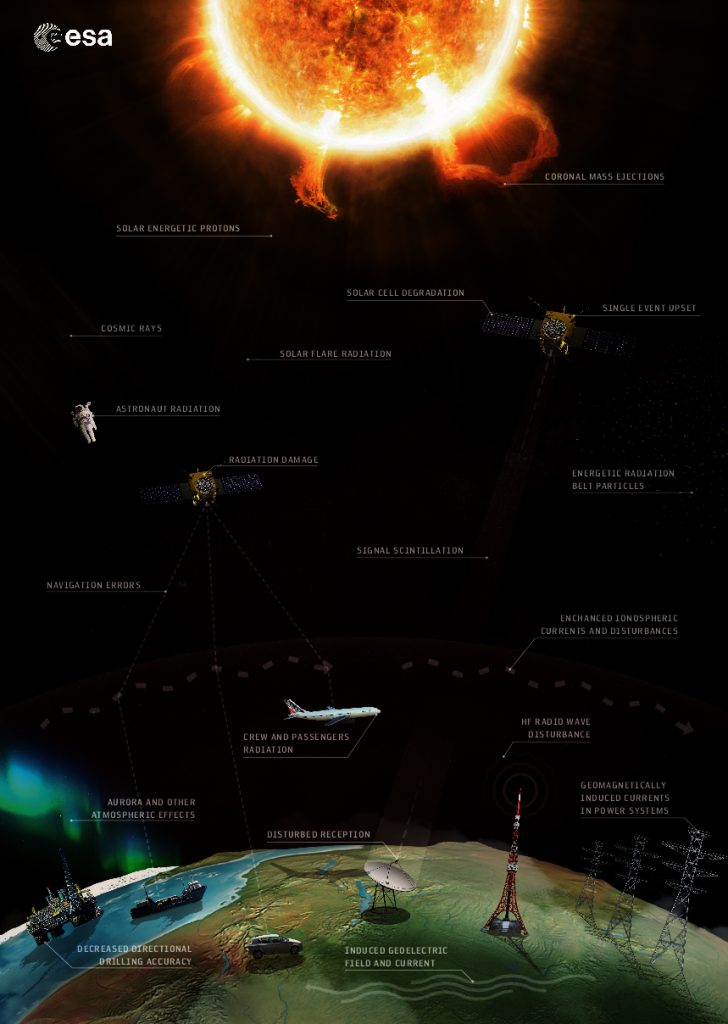European approach to space weather
A special report from international experts was released on October 10, 2019, to explain the challenges of space weather and to provide a set of recommendations against radiation hazards in space. David Berghmans, of the Royal Observatory of Belgium, is a co-author of the report.
Space weather refers to the environmental conditions in space as influenced by solar activity. To prevent radiation hazards on satellites and spacecrafts and health risks for astronauts, a thorough knowledge of space weather is of high importance.
The report, spearheaded by the European Science Foundation’s European Space Science Committee (ESSC), is directed to the European Space Agency (ESA), the European Union (EU) and their respective member states. It highlights the need of strong coordination between members states and European bodies and organisation.
The ESSC experts have identified six activities that urgently require coordination at European level:
- Enabling critical science to improve our scientific understanding of space weather. Support must be provided for the next generation space missions and the maintenance and augmentation of ground-based infrastructure.
- Development and coupling of advanced models by applying a system-science approach that utilises physics-based modelling.
- Assessment of risks at national, regional and European levels. This requires close cooperation between decision makers, space weather scientists, service providers, and end-users.
- Consolidation of European User Requirement on a regular basis, considering regional and societal differences and needs.
- Supporting continuous iteration and feedback between space weather scientists and candidate organisations for space weather services (transition from Research to Operations).
- Definition and implementation of an operational network for future space weather observations, leading to predictions that will allow us to protect the society’s infrastructure.
Given that many countries are developing increasingly sophisticated infrastructure, which at this point can still be better prepared against space weather risks, this is a crucial step towards making our modern and technology-reliant society sustainable and resilient.
You can read the report on: https://www.swsc-journal.org/articles/swsc/abs/2019/01/swsc190036/swsc190036.html (free access, under a Creative Commons CC BY 4.0 licence)
Original press release of the European Science Foundation: http://www.esf.org/news-media/news-press-releases/article/how-can-europe-explore-further-understand-more-and-prepare-better-for-adverse-space-weather-effects/

